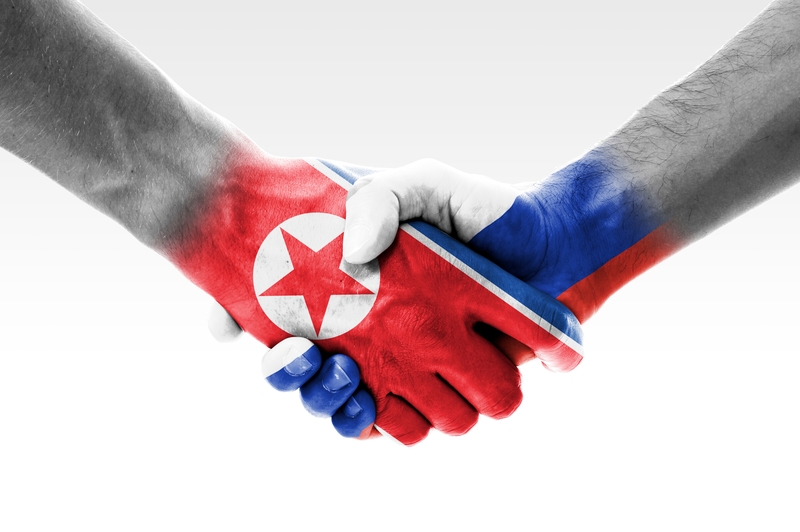Russia-North Korea Relations in context
Russia and the Democratic People’s Republic of Korea (DPRK) have recently deepened their cooperation not only in the political domain, but also in the military-technical domain. DPRK supports Russian war efforts in Ukraine, and Russia could, in exchange, supply DPRK with advanced technologies for the DPRK military.

The small-scale cooperation started in November 2022 when DPRK supplied then-existing Wagner Group with small arms. Then, DPRK started to supply Russian army artillery shells for its war efforts in Ukraine. DPRK is now supplying up to five million artillery shells to Russia and an unspecified number of short-range ballistic missiles that are quite inaccurate and were used mainly against the Ukrainian city of Kharkov. The latest reports also indicated that 40 to 50% of the artillery shells supplied by the DRPK could not be used due to technical reasons and the general technical state of the ammunition, or cause malfunction or destruction of Russian artillery pieces. However, it is difficult to credibly verify these claims, as Russian artillery fire has not decreased significantly over time. On the contrary, latest reports from Ukraine indicate that Russian artillery fire has slightly increased. In general, one could argue that artillery shells from the DPRK helped Russia during the time when the Russian defense sector was restoring full-scale ammunition production and thus was a key to maintaining Russian artillery advantage in 2023 and 2024.
On the other hand, the help Russia is receiving from the DPRK is not free. Kim‘s régime wants to have access to advanced technologies and weapons that could pursue its own political and military goals on the Korean Peninsula and in Northeast Asia in general.
To support his position, Kim-Jong Un visited Russia in September 2023 during which he met Russian president Vladimir Putin and visited a few quite interesting places, which could be linked with what technologies and capabilities Kim wants to acquire. Kim started his visit to the Vostochnyi Cosmodrome with a meeting with Putin. Together, they toured the facility and Russians showed their DPRK counterparts launch pads from Soyuz-2 and Angara rockets. Then, Kim’s delegation visited the Komsomolsk Aircraft Plant in Amur and toured the Su-57 and Su-35 multi-role fighter jet assembly line. Probably the most interesting and most important aspect of Kim's visit is the day when Kim and his delegation visited Vladivostok International Airport, where they were shown the strategic bomber Tu-160 and Tu-22, the fighter bomber Su-34, the Su-25 close air support aircraft, the multirole fighter jets SU-30SM and, most importantly, the Kh-47M2 Kinzhal aerobalistic missile currently used by the Russian Aerospace Forces in Ukraine against high-value targets in the country. During the second half of the Vladivoistok visit, Kim was shown equipment of the Russian Pacific Fleet, including anti-ship missiles Kh-35 currently also used in Ukraine. During the visit, both parties discussed military-technical cooperation and potential development of space capabilities.
It should be noted that North Korea recently made significant progress in modernizing its armed forces. Although the recent military satellite launch failed, it should be noted that Russian specialists were in the DPRK before the launch. Kim also stressed the plan to modernize the DPRK Navy submarine component. One could argue that Russia is also helping the DPRK with submarine modernization, which could have significant impact on the balance of military power on the Korean Peninsula and could force the Republic of Korea to consider acquisition of nuclear-powered submarines, which could trigger Japan to respond. The DPRK also recently showed progress in its missile forces by parading the Hwasong series of missiles and testing a Hwasong-16B, which is, according to DPRK reports, a hypersonic ballistic missile.
Currently, it is not known whether Russia is actively helping the DPRK with modernization of its armed forces. There are, however, signs that Russia could help the DPRK with critical capabilities such as submarines or military satellites. Both cases could have devastating effects on both regional and global security due to geographical location and proximity to a vital sea line of communications.
For Europe, this development means that it should focus on its own defense capability to free US resources that could be deployed in the Western Pacific to deter not only China, but the DPRK as well.








